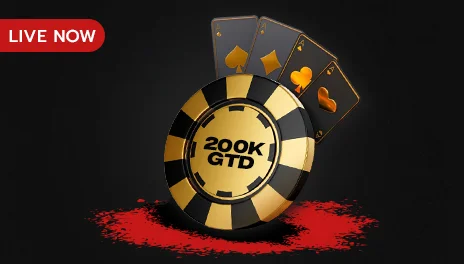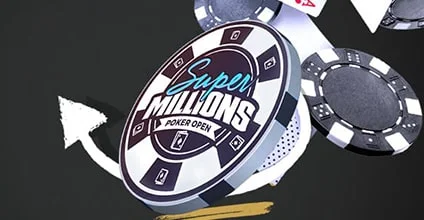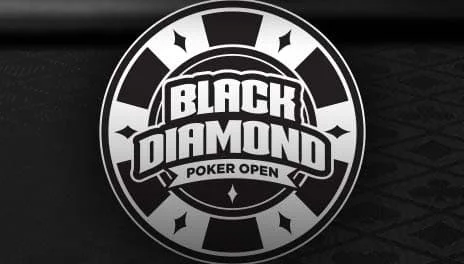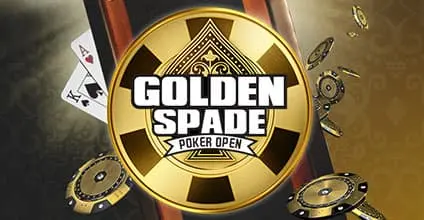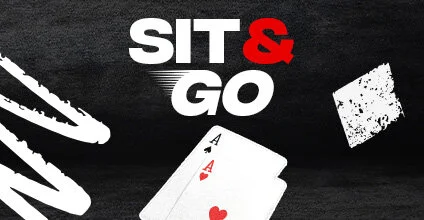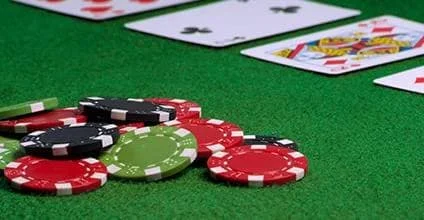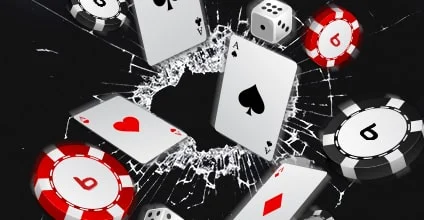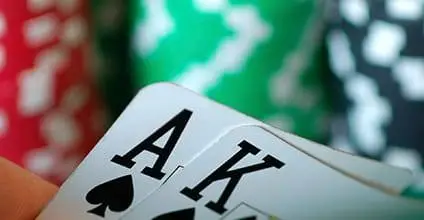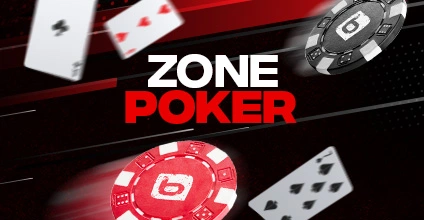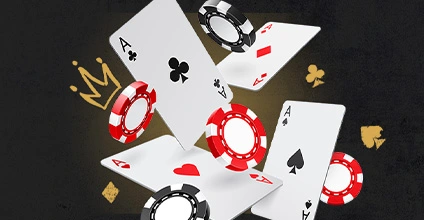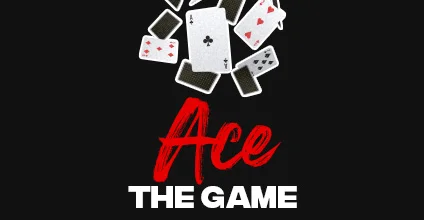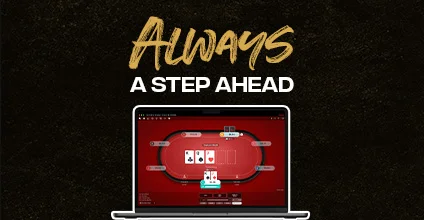Online Poker in Canada at Bodog
Bodog has been offering online poker in Canada since 2009. We offer Texas Hold'em, Omaha, and Omaha Hi/Lo games with blinds ranging from $0.02/$0.05 (at $5 tables) to $5/$10 (at $1,000 tables).
If you want to play online poker for real money in Canada but don't want to commit to a long tournament, our cash games are perfect for you. We also feature our own version of fast-fold poker called Zone Poker.
Beyond real money poker cash games, we host several poker tournaments daily and weekly, including Scheduled Tournaments, the $200,000 Guaranteed, Knockouts, Progressive Knockouts, and Jackpot Sit & Go Tournaments. For tournament enthusiasts, we offer three Major Poker Series: the Super Millions Poker Open, the Black Diamond Poker Open, and the Golden Spade Poker Open, each featuring more than 150 events with various buy-in levels.
You can download Bodog's free software to play from your computer or mobile device.
CASINO BONUS FOR POKER PLAYERS
All new poker players at Bodog can claim a 100% match welcome bonus up to $1,000. We also offer a Crypto Casino Bonus with a 150% match up to $900. Visit our promotions page to stay updated on our latest bonuses and casino rewards.
OUR REAL MONEY BETTING LIMITS IN POKER
No Limit Hold'em cash games start from $0.02/$0.05 and reach up to $5/$10, while Fixed Limit Hold'em offers stakes from $0.05/$0.10 to $30/$60. For those seeking fast-paced action, our Zone Poker provides stakes from $0.02/$0.05 to $2.50/$5, complemented by Sit & Go tournaments with buy-ins from $1 to $100. Our Jackpot Sit & Go events feature tiered buy-ins, offering prizes from $1,000 to an impressive $100,000 jackpot for a $50 entry.
The excitement continues with our Omaha variants, providing diverse stake ranges to suit every player. Pot Limit Omaha cash games run from $0.02/$0.05 to $10/$20, while Omaha Hi/Lo offers both cash games and Zone Poker options, with the latter available at $0.05/$0.10 and $0.25/$0.50 stakes. Tournament players can enjoy both variants through Sit & Go events with $1-$100 buy-ins and Multi-Table Tournaments ranging from $1 to $1,000 buy-ins for Omaha Hi/Lo. These tournaments feature various formats including knockout and progressive structures, along with daily guaranteed prize pools.
TEXAS HOLD'EM AT BODOG
We offer Texas Hold'em poker across multiple formats. Our No Limit Hold'em and Fixed Limit Hold'em cash games include two innovative features: Anonymous Tables, which identify players by numbers instead of usernames, and Quick Seat, which automatically assigns players to tables for immediate action.
We also offer an extensive range of Texas Hold'em tournaments, from daily events to prestigious weekly majors, including our signature $200K Guaranteed Tournament and special series like the Super Millions Poker Open. Our Multi-Table Tournaments come in various formats, including Knockout Tournaments, Progressive Knockouts, and Mystery Knockouts, each offering unique ways to win.
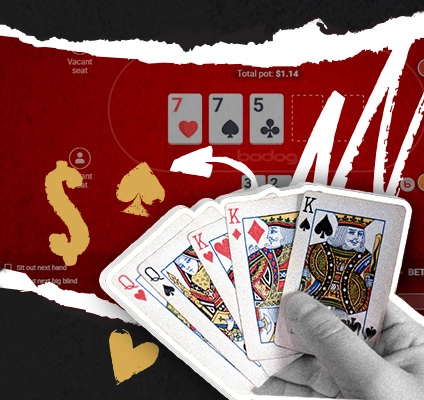
OMAHA POKER
Omaha poker provides an exciting alternative to Texas Hold'em, with multiple variations available including Pot Limit Omaha (PLO) and Omaha Hi/Lo. Players can enjoy both tournament play, with Sit & Go and Multi-Table Tournaments in various formats, and cash games at stakes suitable for every bankroll level. For fast-paced action, our innovative Zone Poker brings the fast-fold concept to Omaha, while our daily guaranteed tournaments provide consistent opportunities for competition.
Pot Limit Omaha stands as our most popular variant, offering a perfect balance between big-bet excitement and controlled exposure through its unique betting structure. Our tournament formats include Freezeouts, Re-entry events, and Knockout tournaments, while cash games feature short-handed tables designed for dynamic, action-packed play. All games adjust to current demand, ensuring optimal table availability for both casual players and serious grinders.
OMAHA HI-LO POKER
Omaha Hi-Lo follows similar rules to regular Omaha, with one major strategic difference - the pot is split between the highest and lowest qualifying hands. Each player receives four hole cards, and the best five-card hand uses two hole cards and three community cards. However, in Omaha Hi-Lo, there are two winning hands per round, with the pot split between the strongest high hand and the weakest low hand.
For a hand to qualify as a low, it must contain no card higher than an 8. Aces count as both high and low cards, making A-2-3-4-5 the best possible low hand. Importantly, qualifying low hands are not affected by straights or flushes.
POKER TOURNAMENTS AND MAJOR POKER online SERIES
Our daily tournament schedule forms the backbone of our poker online offering, with Multi-Table Tournaments featuring buy-ins from $1 to $150. Players can participate in various tournament formats, including Knockout Tournaments where each player carries a bounty, Progressive Knockouts where bounty values increase throughout the event, and Mystery Knockouts offering surprise rewards up to ten times the buy-in.
Tournament structures cater to all preferences, from Hyper Turbo events for speed enthusiasts to Monster Stack tournaments for deeper play. The "Thousandaire Maker" series stands out for its value proposition, turning modest investments into four-figure prizes. Sit & Go and Jackpot Sit & Go tournaments provide instant action across formats, from heads-up battles to nine-player tables, with buy-ins ranging from $1 to $100.
MAJOR POKER SERIES AT BODOG
Our Major Online Poker Series showcase prestigious events and substantial guarantees. The Super Millions Poker Open, the Black Diamond Poker Open Tournament Series and Golden Spade Poker Open lead our special series calendar, while our Sunday tournaments feature our most significant guaranteed prize pools of the week. The schedule begins with a $10,000 Guaranteed Warm-Up Event for an $11 buy-in, building up to our flagship $200,000 Guaranteed Tournament with a $162 buy-in. The schedule peaks with a High Roller event offering $100,000 guaranteed for a $325 buy-in. Players seeking more economical paths to these major events can participate in satellite tournaments, qualifying at fractions of the direct entry cost.
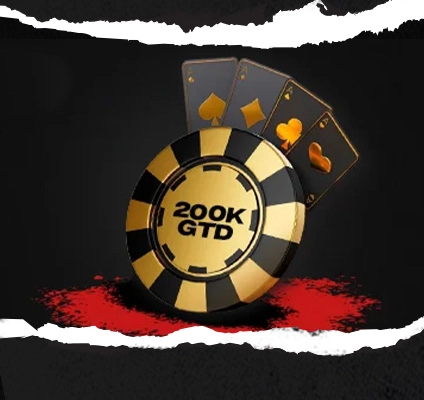
REAL MONEY POKER CASH GAMES
Our 24/7 cash games welcome players with buy-ins ranging from $2 to $1,000, offering the freedom to join or leave at any time. These ongoing real money poker games cater to all skill levels, with beginners able to practice for free. Available formats include Fixed Limit and No Limit Texas Hold'em, Pot Limit Omaha, and Omaha Hi/Lo variants.
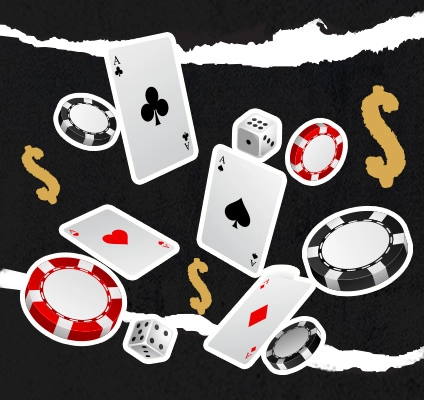
SPECIAL ONLINE POKER FEATURES AT BODOG
Bodog continuously evolves, introducing new special online poker features to enhance your experience through improved software. Our lightweight, streamlined interface focuses on clear gameplay without lagging from high-res graphics or loading screens. Mobile players can enjoy seamless poker action with our user-friendly interface optimized for smartphones and tablets.
The Quick Seat feature gets you into cash games rapidly with just two simple steps, while our Quick Chat Feature enables efficient communication using pre-set phrases and auto-translating emojis, with options to mute players or tables. Zone Poker offers fast-paced action by instantly moving you to a new table with new players after folding, maximizing your hands played per hour.
We enhance game integrity through Anonymous Tables, concealing your identity and playing history from opponents for a fresh start at each table. The All-in Percentage Feature shows you the live probability of winning the main pot when going all-in, while customization options let you choose from four dynamic card designs and six colour options for table themes.
Our software supports multiple languages including English, Spanish, and Portuguese, catering to a diverse player base. The Hand History Viewer enables detailed analysis of previous hands with rewind and fast-forward controls, while complete hand histories reveal all players' hole cards after tournaments or cash games. For heads-up players, we offer instant rematches when both players agree, and Zone Poker enthusiasts can play up to two entries simultaneously in the player pool.
BASIC POKER RULES
Poker is a card game that combines skill, strategy, and chance, where players compete to win chips by either having the best hand or convincing others to fold their cards. While there are many variants, the most popular forms are Texas Hold'em and Omaha poker. Each variant follows specific online poker rules, but they all share common elements like betting rounds and hand rankings.
Texas Hold'em Rules
In this poker game, players receive two private cards (hole cards) and must combine them with five community cards dealt face-up on the table to make the best possible five-card hand. Players can bet, check, raise, or fold during four betting rounds: pre-flop, flop, turn, and river. Learn how to play Texas Hold'em in detail on our dedicated page.
Omaha Poker Rules
Pot Limit Omaha is similar to Texas Hold'em but with a crucial difference: players receive four hole cards instead of two. To make their final hand, players must use exactly two of their hole cards and three community cards. This requirement creates more action and bigger pots. Discover more about how to play Omaha poker in our comprehensive guide.
Omaha Hi Lo Rules
How to play Omaha Hi Lo (also known as Omaha Eight or Better) follows the same basic structure as regular Omaha, but the pot is split between the best high hand and the best qualifying low hand (eight or better). Players must use exactly two hole cards and three community cards for each hand (high and low), and they can use different combinations for each. If no qualifying low hand exists, the high hand wins the entire pot.
WHY CHOOSE BODOG TO PLAY ONLINE POKER IN CANADA
With over 15 years of experience serving Canadian players, Bodog Poker stands as your premier destination for online poker. We provide a secure and engaging environment for players of all levels. Our innovative features like Anonymous Tables and Quick Seat ensure a fair, smooth experience, while our mobile-optimized platform lets you enjoy your favourite poker games anywhere, anytime.
Start your poker journey today with our generous welcome bonus of up to $1,000, or take advantage of our special crypto bonus of 150% up to $900. Download our free software now and join thousands of players at the tables. At Bodog Poker, we're dedicated to providing the best online poker experience in Canada, one hand at a time.
Ready to play? Download now and claim your welcome bonus to begin your poker adventure at Bodog.
Want the latest Poker, Casino and Sports, and updates? Bodog News has you covered.




